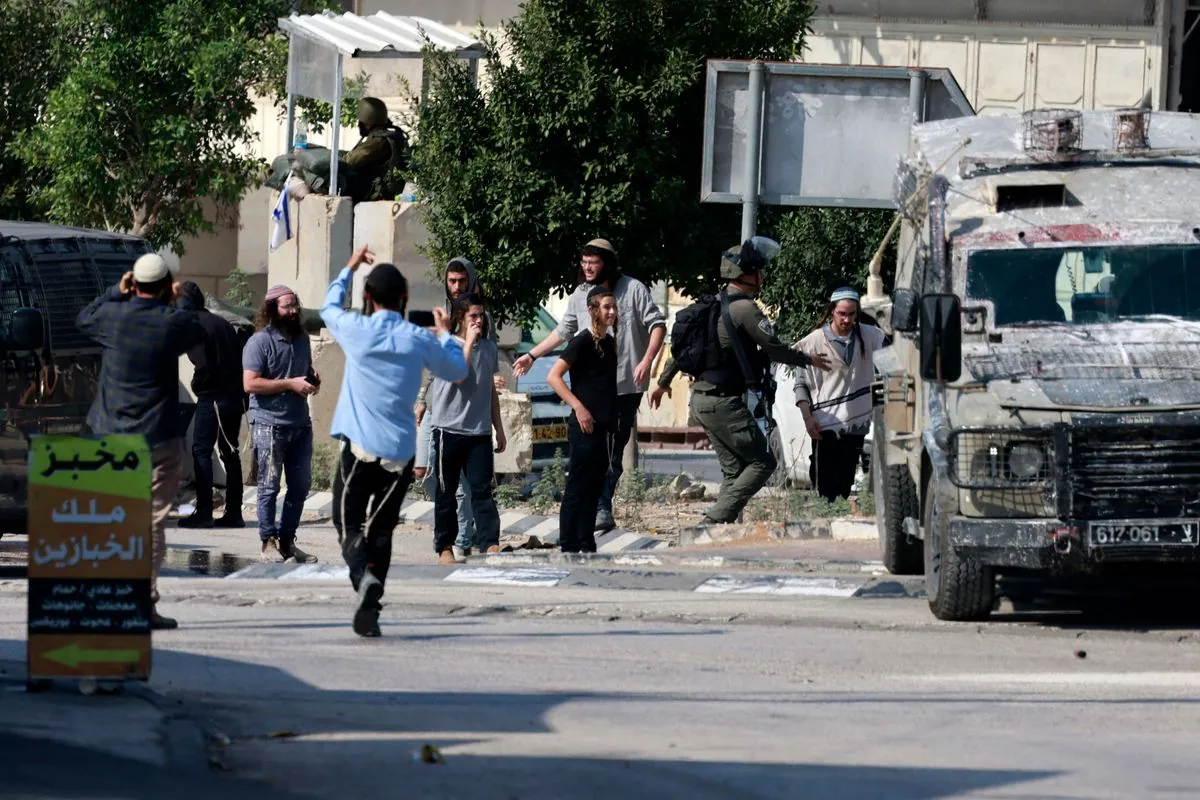In recent months, Israeli security officials have voiced growing apprehension regarding the escalation of violence perpetrated by Jewish settlers against Palestinians in the West Bank. This surge in aggression comes as Israel commemorates the one-year anniversary of the Hamas attack on October 7, 2023, and the subsequent conflict in Gaza.
Yehuda Fuchs, the outgoing head of the Israeli military's Central Command, and Ronen Bar, chief of the Shin Bet security service, have both issued stark warnings about the rise in settler violence. However, these statements may be misleading, as they appear to separate settler actions from the broader context of the Israeli occupation.
The situation in the West Bank is more nuanced than official statements suggest. Since the early 2000s, two distinct forces have emerged within the Israel Defense Forces (IDF): the official army and a policing force specifically operating in the West Bank. This policing force includes an infantry brigade, border police units, and settler militias armed and trained by the IDF.
It's crucial to distinguish between two types of settler violence: functional and dysfunctional. Functional violence, which often serves the state's goals of land acquisition, is generally tolerated by authorities. In contrast, dysfunctional violence, such as extreme attacks that threaten the security order or harm Israel's international standing, is condemned by officials.
The Israeli human rights organization B'Tselem has documented this dynamic in their 2021 report, "Settler Violence = State Violence." The report highlights how settler violence is often intertwined with official state actions in the process of taking over Palestinian land.
"Settler violence is a form of government policy, aided and abetted by official state authorities with their active participation."
Statistics from Yesh Din, another rights group, reveal that between 2005 and 2023, only 3% of investigations into ideologically motivated offenses by Israelis against Palestinians resulted in convictions. This low conviction rate raises questions about the effectiveness of law enforcement in these cases.
The United Nations Office for the Coordination of Humanitarian Affairs reports that settler attacks on Palestinians increased from an average of 71 per month in 2022 to about 110 per month since the start of the Gaza war in October 2023. This significant rise has drawn international attention to the issue.
One particularly concerning aspect of settler violence is its role in community displacement. Since the beginning of the Gaza war, approximately 1,100 Palestinians from 19 isolated communities have been forcibly displaced due to settler violence or threats thereof, sometimes with the involvement of soldiers.
The IDF's response to these displacements has been controversial. In many cases, the military has prevented displaced communities from returning to their lands, even after court decisions in their favor. This approach raises questions about the IDF's commitment to protecting all residents of the West Bank, regardless of their ethnicity.
The situation has been further complicated by the rise of Israel's right-wing government in 2023. Coalition agreements have granted significant powers in the West Bank to politicians like Bezalel Smotrich, potentially undermining the IDF's authority in the region.
As the international community continues to monitor the situation, it's clear that addressing settler violence in the West Bank requires a comprehensive approach that acknowledges the complex interplay between settler actions, military policies, and broader political goals in the occupied territories.
